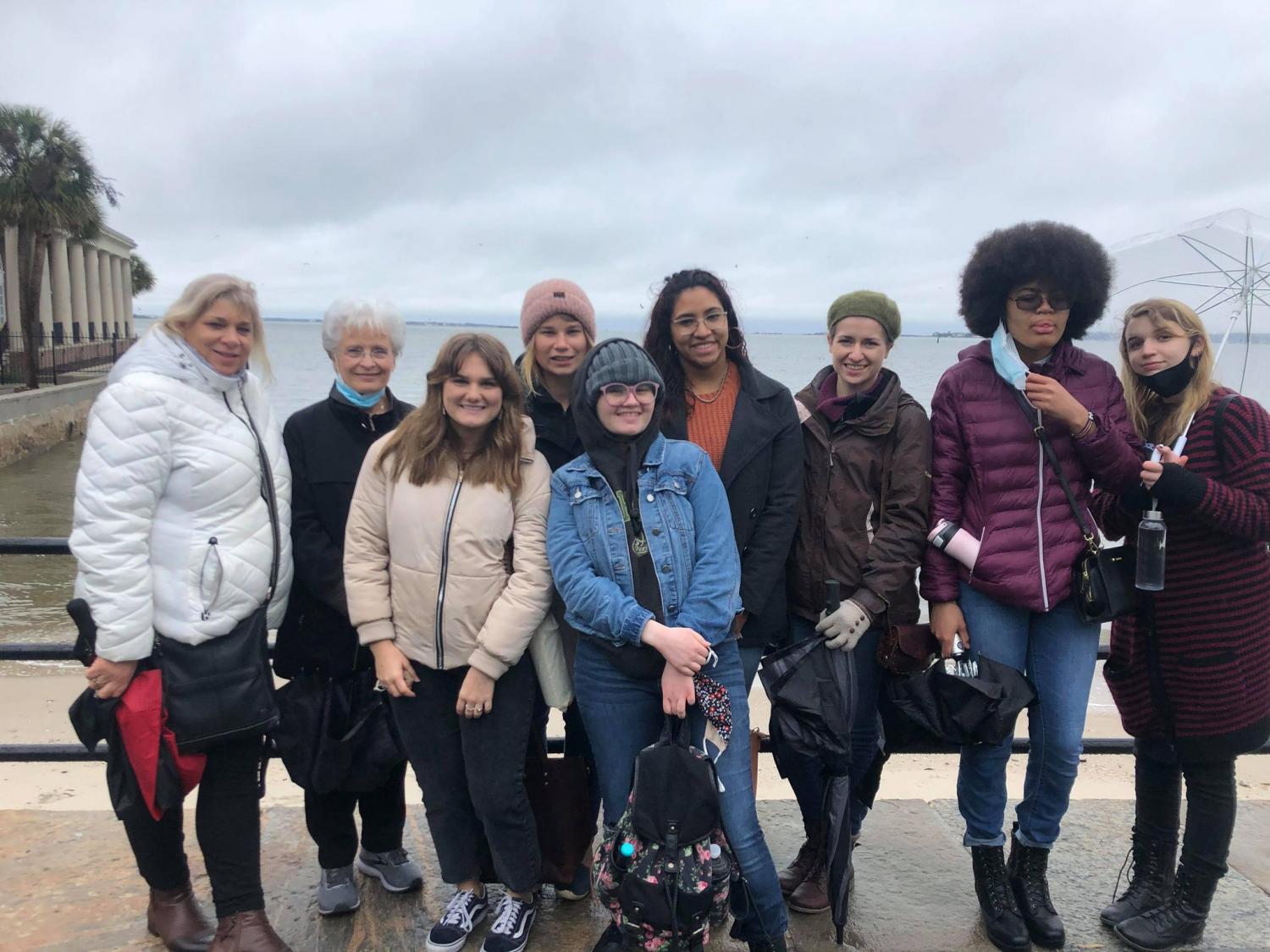Course Spotlight: Why Did Peter Deny Christ?
/in LivingEd - Online LearningIn some of our online courses, we have a “Student Thoughts” section where we ask a question to see what the students think. In Unit 4 of the Life Ministry and Teachings of Jesus Christ course, we asked the question:
Why did Peter deny Christ (Luke 22:54-62)? What can we do in our own lives to make sure we do not deny Him (Matthew 10:32-33)?
Come take a look at some of the Student Responses below!
“Peter denied Christ three times because he feared. Scriptures tell us to be of courage and have faith. Christ also told us to pray not to be lead into temptation. If we are truly converted and do not deny Christ, He will not deny us to the Father. We must truly be sure we know the truth, love the truth, live the truth, and be willing to die for it if necessary.”
– SJ
“We have often been admonished to overcome self, Satan, and society. This incident with Peter is a good example of these three pulls in our lives. First, Peter was fearful of what society would do to him. The scripture reference of Matthew 10:32-33 is in the context of Jesus’ instructions to His disciples before sending them out. The preceding verses instructed them not to fear those who can kill the body but not the inward man that God has started within us. Peter’s focus on what the governing authorities could do was part of his failure here. Another vital part was that Satan was ‘playing him like a cheap fiddle.’ Jesus predicted Peter’s denial just a little earlier saying, ‘Simon, Simon! Indeed, Satan has asked for you, that he may sift you as wheat.’ (Luke 22:31) However, Satan’s influence over Peter’s actions here was because Peter was trusting in his own strength. This is evidenced by his use of the sword. In order for us to succeed in the job God has given us to do, we need to recognize our enemies. We have three. They are self, Satan, and society”
– TW
“Peter was still carnal, not fully conquered by the power of God, the Holy Spirit. Also, Peter was relying on his strength rather than putting his trust in God to take care of everything. So, for us today, we have to keep the commandments of God as shown in John 14:15. Also in 1 Thessalonians 5:18-22, we are told, ‘give thanks in all circumstances; for this is the will of God in Christ Jesus for you. Do not quench the Spirit. Do not despise prophecies, but test everything; hold fast what is good. Abstain from every form of evil.’ [ESV] “
– LK
Forum Summary: Understanding Ourselves and Others
/in LivingEd - CharlotteAuthor: Juliette McNair | Student, Living Education 2021
Estimated Reading Time: 3 minutes, 43 seconds.
Mr. Bob Rodzaj joined the Living Education students and staff from wintry Racine, Wisconsin via Webex. As he spoke, snow was falling, adding to the 2 feet already on the ground. Mr. Rodzaj grew up in Rochester, New York. He was introduced to the Church while he was studying architecture at Virginia Tech. After graduating with his bachelor’s degree, Mr. Rodzaj attended Ambassador College. He was ordained into the ministry over 30 years ago and currently pastors five congregations in Wisconsin, Illinois, and Iowa.
Mr. Rodzaj said, “Many years ago, I remember Dr. Meredith telling us to become students of human nature—why people do what they do, what makes them the way they are… I’d like to talk about that very subject: the need to better understand ourselves and others.”
“You bring with you what makes you—you.”
As a latchkey child, Mr. Rodzaj grew up with both his parents working full time. Outside of school, he was essentially alone. “By the time God called me at age 21, I was a deeply troubled, angry young man with a lot to overcome… But God helped me grow past the past.” Mr. Rodzaj said, “I speak to you at the beginning of your adult lives.” He asked the students how well they understood what they want out of life, why they want it, what’s important to them at the very core of their being—and how their past has shaped them. Mr. Rodzaj explained, “As a pastor, I’ve dealt with people who struggle with the effects of their past—particularly their formative years.” If people could understand themselves and others, they would improve the quality of their relationships and develop the ability to make a real difference in the lives of others now and in the millennium.
“The story of Job is the story of each one of us…”
Job thought he understood himself and God. He did what was right and thought he understood what God expected of him. Yet, Mr. Rodzaj explained, “Job’s relationship with God was based on fear.” Job said, after God allowed Satan to persecute him, “For the thing I greatly feared has come upon me” (Job 3:25). Job was motivated by terror: “He is unique, and who can make Him change… Therefore I am terrified at His presence” (Job 23:13-16). Mr. Rodzaj asked, “Does this describe a trusting relationship? Is this the kind of relationship God wants us to have with Him?” Eventually, Elihu told Job, “For has anyone said to God… ‘Teach me what I do not see…’?” (Job 34:31-32). Job hadn’t asked God for this understanding. Mr. Rodzaj explained that Job hadn’t understood what motivated him and the relationship that God expected of him. But Job came to understand himself and God correctly.
Do we understand our motives?
Mr. Rodzaj gave other examples in the Bible of individuals who needed to better understand themselves. One was the rich young man of Matthew 19:16-22. Mr. Rodzaj compared him to a young person in the Church. “The young man was very diligent, but there was something buried deep in his heart that he couldn’t see. Christ pierced right through to the core of the young man’s desire and ambition.” When Christ told him to go and sell all that he had, “he wasn’t willing to go there. But sooner or later, he would have to if he really wanted to inherit eternal life.” Mr. Rodzaj mentioned other individuals who needed to understand themselves. Adam and Eve didn’t understand their gullibility. Moses struggled with his fierce anger. And even Peter had to reckon with a cowardly side.
God Can Help
“People’s tendencies have an impact on their well-being and the well-being of others. It affects how we function, how we deal with life, and how we deal with others.” Mr. Rodzaj admitted that when he was the students’ age, he hadn’t understood himself. “I wish I had understood these things sooner. It would have made a world of difference—in my life, in my marriage, in my parenting, in my role as a minister and member, as an employee, as a boss, and as a friend.” Understanding yourself helps you to better understand others. But only God can search a Christian’s heart and mind (Jeremiah 17:10). God can help if we take Elihu’s advice and ask Him to “teach me what I do not see” (Job 34:32). Mr. Rodzaj concluded, “My hope and prayer is that you can learn this sooner and enjoy its fruit in your life and in all your relationships.”
This post is part of our new series of student-written content for LivingEd-Charlotte. These summaries cover topics originally presented by our faculty and guest speakers in our weekly Forum and Assembly. For more Assembly-related content check out our Second Thoughts posts.
Digging Deeper: What was Moses’ Seat?
/in LivingEd - Online LearningAuthor: Mr. Kenneth Frank | Faculty in Theology, Living Education
Estimated Reading time: 7 min.
Did you know that Moses was honored with a seat in New Testament Jewish synagogues?
Centuries after Moses died, the seat of Moses was an honored chair in these meeting houses. In the first century, there is evidence from some synagogues of a special decorative seat called the “Seat of Moses” on a raised platform. His seat was filled by men who claimed the exalted position of teaching by Moses’ authority. Jesus referred to this religious office with some sharp statements about the religious leaders who occupied it. Today’s Digging Deeper explores the history behind this exalted position with Jesus’ important caveat.
Our central passage for this study is: “Then spake Jesus to the multitude, and to his disciples, Saying, The scribes and the Pharisees sit in Moses’ seat: All therefore whatsoever they bid you observe, that observe and do; but do not ye after their works: for they say, and do not” (Matthew 23:1-3 KJV). In this same chapter, Jesus pronounced seven woes upon these men for their abuse of power (Matthew 23:13-36).
The authority of Moses
Moses was the great legislator of the Israelite nation. God inspired him to preach and to inscribe five books (the Torah or Pentateuch) in God’s name. His influence transcended the centuries, for he is named 80 times in our New Testament, having a massive presence among the devout of the land. Moses occupied the office of expounder and chief justice for the application of the law to specific cases of conduct. Exodus 18 describes how his father-in-law convinced him to delegate authority to other judges under his command, thereby sharing his authority but leaving him as the chief justice with God’s final authority. Upon his death, Moses’ authority passed on to his successors who sat in his seat.
The Expository Notes of Dr. Constable explains what sitting in Moses’ seat represented: “According to Old Testament figurative usage a person who sat on a predecessor’s seat was that person’s successor (Exodus 11:5; 12:29; 1 Kings 1:35; 1:46; 2:12; 16:11; 2 Kings 15:12; Psalm 132:12)” (e-Sword 12.2). Adam Clarke’s Commentary on the Bible explains why God permitted them to do so: “They sat there formerly by Divine appointment: they sit there now by Divine permission” (Ibid.). They were not authorized to mandate new law but rather to interpret already provided law for their followers.
The College Press Bible Study Textbook Series describes how his position was transferred upon his death: “Moses’ seat is his cathedra, his ‘Bible Chair’ from which his doctrine is read and expounded. In Malachi’s day it was the priests who had the magisterial responsibility (Malachi 2:7 ff.), a duty as old as the priesthood itself (Leviticus 10:17; Deuteronomy 17:9-13). But with ‘Ezra the priest and scribe’ (Nehemiah 12:26) the function began shifting onto professional scribes (Nehemiah 8:4, 7-9; 8:13, 18; cf. Ezra 7:1-6; 10)” (e-Sword 12.2).
The Transfer of Influence
In the first century, the Levites were to have been Israel’s teachers, but most of them were Sadducees and no longer carried the same authority. Moses’ authority had devolved to the scribes and Pharisees. Study of the Scriptures was of little interest to the indifferent Sadducees. The Pulpit Commentary, edited by H.D.M. Spence and Joseph S. Exell, explains: “The Sadducees seem to have had no popular influence, and were never recognized as leaders. The Levitical priests never appear in the Gospels as teachers or expositors of the Mosaic system; this function of theirs had devolved upon scribes and lawyers” (e-Sword 12.2).
By Jesus’ day, scribes (doctors of the law or legal experts) were mostly from the Pharisaic party instead of the Sadducean, but not all Pharisees were scribes. Dr. Bob Utley’s You Can Understand the Bible describes the scribes as “…experts in the Written Law (OT) and the Oral Law (Talmud) of Israel and were available to make local practical applications. In effect they replaced the traditional OT functions of the local Levites” (e-Sword 12.2). A Commentary on the Holy Bible, edited by J.R. Dummelow explains their claim to authority: “The scribes (who were ordained with the laying-on of hands) claimed to have received their authority through an unbroken succession from Moses. The ‘sitting’ refers to the judicial power, and the authority to teach, which all scribes or rabbis possessed, and which was centred in the Great Sanhedrin [Jewish supreme court]” (Ibid.).
Sitting to Teach
Moses’ writings were read incrementally in the synagogues every Sabbath day (Acts 15:21). When the Law of Moses (Genesis-Deuteronomy) and the Prophets were read from the scrolls stored in “the Ark” (cabinet) in synagogues, the reader stood; however, when he expounded the reading afterward he sat. Sitting was the posture of a teacher. Jesus employed this position to teach as well: “And seeing the multitudes, he went up into a mountain: and when he was set, his disciples came unto him” (Matthew 5:1 KJV). The Cambridge Bible for Schools and Colleges notes that “In the Talmud ‘to sit’ is nearly synonymous with ‘to teach'” (e-Sword 12.2).
When Jesus said the scribes and the Pharisees sit on Moses’ seat, He merely acknowledged the fact. The Cambridge Bible for Schools and Colleges explains His remark about these leaders: “Where they went wrong Jesus will point out. But here He must mention them, because, despite their faults, they uphold Moses, as opposed to the paganizing leadership of the Sadducean priesthood” (e-Sword 12.2).
However, Jesus did criticize their hypocrisy (Matthew 23:3-7). The College Press Bible Study Textbook Series clarifies that Jesus’ criticism of these religious leaders was not for their holding such an authoritative position but “…because their party zeal strenuously applied the theologians’ legalistic conclusions to everyday life with a rigor that required everyone to fall in lock-step behind them. In this sense, the Pharisees, too, were Israel’s teachers, even if unofficially” (e-Sword 12.2).
To do what they say
In Matthew 23:3 Jesus does not dispute the importance of Moses’ law, but His implication is clear. He goes on to explain that these teachers did not obey their teachings (Matthew 23:4). As The College Press Bible Study Textbook Series continues ” … whatever comes from Moses is from God and is to be received with full confidence and submission. Merely because Jesus must undercut the unjustified pretensions of the Jewish magisterium does not mean that Moses must go too. So, before beginning His condemnation of the unfaithfulness and sinful conduct of the religious leaders, He calls for sincere reverence for God’s Law” (e-Sword 12.2).
Matthew Henry’s Commentary on the Whole Bible provides us two important lessons from this passage:
“1. Many a good place is filled with bad men; it is no new thing for the vilest men to be exalted even to Moses’s seat (Psalm 12:8); and, when it is so, the men are not so much honoured by the seat as the seat is dishonoured by the men. Now they that sat in Moses’s seat were so wretchedly degenerated, that it was time for the great Prophet to arise, like unto Moses, to erect another seat.
2. Good and useful offices and powers are not therefore to be condemned and abolished, because they fall sometimes into the hands of bad men, who abuse them. We must not therefore pull down Moses’s seat, because scribes and Pharisees have got possession of it; rather than so, let both grow together until the harvest, Matthew 13:30″ (e-Sword 12.2).
Respect for high office, especially religious office, is a fundamental teaching of church government. Jesus set the record straight at a time when there was much abuse of this position by the religious teachers. This was not meant to condone their unbiblical behavior but rather to instruct their followers to abide by their correct teachings of God’s word, despite their hypocrisy. God’s mighty word will still change lives, even if delivered by defective servants.

Kenneth Frank was born and raised in New Jersey, USA, and attended Ambassador College, graduating in 1973. He served in the Canadian ministry from 1973-1999, after which he returned to the USA to pastor churches in Maryland, Virginia, and North Carolina for 15 years. Having earned a BA degree from Ambassador College he later earned a MA degree from Grand Canyon University before being assigned to the Charlotte office to teach at Living University, now Living Education. Currently, he teaches the Survey of the Bible course to the on-campus students and writes the Digging Deeper column for our online Bible study program. He is married, has four children, and seven grandchildren.
Student Life: A Ladies Weekend
/in LivingEd - CharlotteAuthor: Juliette McNair | Student, Living Education Charlotte 2021
On February 13, at 1:00 p.m., Mrs. Christy McNair, Mrs. Carol Weston, Miss Rebekah Ross, and the female Living Ed students joined the Walterboro congregation for services. Later that evening, after an adventure of several wrong turns, U-turns, and GPS malfunctions, they happily arrived at their booked Airbnb outside the Historic District of Charleston, South Carolina.
The ladies spent a rainy Sunday morning on a “Charleston’s Alleys & Hidden Passages” tour. They followed their guide through romantic city alleys sandwiched between historic brick pubs, meeting houses, and homes. Magnolias, ferns, and camellias sprawled in the tiny spaces around intricately wrought iron gates, red brick walls, and cobblestone pathways. They walked “Rainbow Road,” where old merchant buildings that originally stood on the riverfront were restored in the 1900s into today’s most-photographed section of Charleston. The ladies stood on the Battery promenade—a civil war defensive artillery site—where the Ashley and Cooper rivers pour into the Charleston Harbor. Through the rain, they could just glimpse Fort Sumter, Fort Johnson, and Fort Sullivan across the water.
That afternoon, they walked and shopped the Charleston City Market, only slightly chilled by the cold rain. The girls warmed up that evening with cups of hot chocolate and cheerful conversation They asked Mrs. Weston and Mrs. McNair about their experiences and shared their own. The next day, they rounded off the trip by visiting the Charleston Tea Garden Angel Oak, a huge 1400-year-old southern live oak.

When asked what she enjoyed most about the Charleston weekend, Meredith Hodges replied, “I really enjoyed the car ride. Getting to know Mrs. Weston was really fun… Also, the tour—all those little alleys and plants were really cool. And dancing in the rain.”
The ladies drove back to Charlotte in more stormy weather—but not even a little rain could dampen their fun this weekend.

Juliette McNair is a student at Living Education Charlotte. She works in the Editorial Department transcribing sermons and proofreading transcripts. She also assists Living Education by writing Second Thoughts essays and Forum/Assembly Summaries for the website. Juliette recently graduated from SUNY Cobleskill in Upstate New York with an A.A.S in Horticulture, a B.T in Plant Science, and a minor in English with a writing focus. She loves playing soccer on the beach, getting up early to watch the sunrise, and playing piano with the lights out.
Course Spotlight: The Gloss of 1 John 5:7-8
/in LivingEd - Online Learning1 John 5:7-8 is a common passage in Scripture that secular Christians claim that the Bible supports the Trinity. How can we prove that these verses are not talking about God having a Trinitarian nature?
Course Spotlight From The General Epistles: (Part 2) The Letters of John and Jude
Assembly Summary: Don’t Despise the Day of Small Things
/in LivingEd - CharlotteAuthor: Juliette McNair | Student, Living Education 2021
Estimated reading time: 3 minutes, 55 seconds.
Mr. Rod McNair walked into the Living Ed classroom and hung a large picture frame on the whiteboard. It was a portrait of a regal couple standing in a throne room. He said, “Have you ever thought as you’re going through the day, How does this relate to me ruling over cities?” It’s easy to think that the little things of today are trivial and don’t affect our future kingships. But Mr. McNair pointed out that the knowledge and skills learned today may be exactly what is needed in the future. He began, “I’d like to tell the story of a real-life king.”
“We shall reign with righteousness for the benefits and happiness of the Siamese people.”
King Bhumibol Adulyadej, Thailand’s longest-reigning monarch, swore this traditional oath when he ascended the throne in 1950. He planned a career in engineering and science, but when his brother was killed unexpectedly, he became king, and duties of state took precedence over his personal interests. Yet, King Bhumibol was more than just a royal figurehead in Thailand’s constitutional monarchy. Because of his training in engineering, conservation, forestry, and irrigation, he had the ability to begin 43,000 development projects in his lifetime. That training started when he was very young. The king said once, “Some people wonder why I became interested in irrigation or forestry… When I was 10 years old, a science teacher who is now dead taught me about soil conservation.”
Apply yourself to dead-end situations.
Joseph is another example of a ruler whose earlier experiences prepared him for leadership. He eventually recognized that his past prepared him for a specific role. He said to his brothers, “God sent me before you to preserve life” (Genesis 45:5). Mr. McNair said, “He applied himself in dead-end situations. Joseph asked himself, What can I learn from this?” Mr. McNair gave seven pointers to the students.
“Take advantage of what’s in front of you.”
Ephesians 5:15-16 reads, “See then that you walk circumspectly, not as fools but as wise, redeeming the time, because the days are evil.” Mr. McNair told the students to not miss out on the three months they have left in Living Ed. “It’s easy to think the big, valuable stuff is somewhere else and miss the goldmine right in front of us.”
“Look beyond what you can see.”
2 Corinthians 5:7 states that Christians walk by faith and not sight. Just like children playing with Legos and dolls, they have no concept of what they will be as adults. “Whatever stage we’re at, we can’t foresee the whole future.”
“Learn how to relate to different types of people.”
One of the biggest lessons a young person learns is that not everybody thinks like them. Mr. McNair said, “You didn’t choose the other people in this program.” Clashes between differing personalities are inevitable. “But you learn that conflict is not the end of the world… Don’t run from it.” The skill to relate to people and work together as a team lasts forever.
“Learn the habit of learning.”
Education does not stop with formal instruction—most of it occurs outside of the classroom. God inspired the workmen who built the tabernacle (Exodus 31:1-7). “God can download knowledge into you… But probably, God used people who had some ability in that direction.” Establish the habit of learning.
“Keep God at the center.”
“For some, life centers around experience—but if we’re not keeping God at the center, that experience is empty.” Even Christ did nothing apart from God and His will (John 5:30). Mr. McNair related how, as a freshman at Ambassador College, he was offered advice from a vastly more experienced sophomore: “You’re going to have too much to do. When you do, make sure you make time to pray.”
“Go all out.”
“That doesn’t mean burn out.” Living-Ed requires the male students to be in Spokesman’s Club and the ladies to do the Women’s Enrichment Program. From cooking for Friday night dinners to participating in the scheduled activities, Mr. McNair said, “Throw yourself into it.” As Dr. Meredith said after his stroke: “I want to learn every lesson God has for me from this.”
“Don’t despise the day of the small things.”
King Bhumibol died in 2016, but his legacy lives on in the Royal Projects scattered around the nation. The small things he learned early in life laid the foundation for his reign. Zechariah 4:9-10 reads, “The hands of Zerubbabel have laid the foundation of this temple; His hands shall also finish it. Then you will know that the LORD of hosts has sent Me to you. For who has despised the day of small things?” Mr. McNair said, “We’re going to have way more responsibility and opportunities than King Bhumibol… Don’t take it lightly when things start small.”
This post is part of our new series of student-written content for LivingEd-Charlotte. These summaries cover topics originally presented by our faculty and guest speakers in our weekly Forum and Assembly. For more Assembly-related content check out our Second Thoughts posts.
Children’s Bible Program – Level 3: NT Lesson 13 “The Great Commission”
/in LivingEd - YouthFeatured Passage: Mark 16

While Jesus Christ lived on earth as a human being, during His ministry He served and taught people everywhere He went. What was He teaching? The good news of the coming Kingdom of God (aka: the Gospel). As He taught the people about the wonderful truth of God, though they did not fully understand it at the time, Jesus was training His disciples for a very important, and urgent mission. After His resurrection, Christ told the disciples that He needed to return to His Father, but first He had to give them the instructions for the mission.

Discuss:
- What mission did Jesus give to the disciples? How was this mission a continuation of Jesus’ ministry?
- What are the signs that Jesus said would be with those who believe? What do you think is the purpose of the signs?
- Is the mission over? When does God say the mission will be over? Who is responsible to carry out the instructions of Jesus Christ today? What responsibilities do you have in the mission?
- What are the main topics of the Gospel? If you were to explain to someone what the gospel of the Kingdom is, what would you say?

Memory Challenge:
Mark 16:15-18
“Go into all the world and preach the gospel to every creature. He who believes and is baptized will be saved; but he who does not believe will be condemned. And these signs will follow those who believe: In My name they will cast out demons; they will speak with new tongues; they will take up serpents; and if they drink anything deadly, it will by no means hurt them; they will lay hands on the sick, and they will recover.”
Children’s Bible Program – Level 2: NT Lesson 13 “A New Apostle”
/in LivingEd - YouthFeatured Passage: Acts 1

Jesus had died, but now He was alive! For forty days after He was resurrected Jesus Christ had been seen by different people – He talked, walked, and ate with them. Jesus showed the people that death had no power over Him and gave them hope in resurrection from the dead for all human beings who choose to follow God. Soon it was time for Jesus to return to His Father in heaven. The disciples gathered together to receive final instructions from the Lord.

Discuss:
- What did Jesus tell the disciples they were to do once they received the Holy Spirit?
- How many apostles were there at this time? Why do you think it was important for there to be twelve apostles?
- What were some characteristics the apostles looked for in selecting a new apostle? Who were the two men between whom the choice would be made?
- How did they choose between the two?
- Who was selected to replace Judas? What will be his reward in the kingdom (Matthew 19:28)?

Memory Challenge:
Acts 1:8
“But you shall receive power when the Holy Spirit has come upon you, and you shall be witnesses to Me in Jerusalem, and in all Judea and Samaria, and to the end of the earth.”
Children’s Bible Program – Level 1: NT Lesson 13 “The Good Samaritan”
/in LivingEd - YouthFeatured Passage: Luke 10

Jesus Christ taught many different kinds of people. They would sometimes ask Him questions and many times He would use stories, called parables, to answer them and to explain certain lessons. One day a lawyer asked Christ a question about how to receive eternal life. Jesus found that the man already knew the answer – to have eternal life, he must love God with all his being and love his neighbor as himself. The lawyer then asked Christ, “And who is my neighbor?” Jesus could see that the lawyer didn’t really have the right attitude, so He had a very special story in mind to answer his question.

Discuss:
- Why was the lawyer asking Jesus questions?
- What happens to the man who is traveling in the story?
- Who are the first two people who saw the man? What do priests and Levites do as their jobs? Why do you think they didn’t stop to help?
- Who was the third person to see the man lying on the road? Why did he stop to help? What does it mean to have compassion?
- How did the Samaritan help the man who was hurt?
- Who is our neighbor? When we see someone who needs help, what should we do? Can you think of some examples of things you could do to help others?

Memory Challenge:
Luke 10:27
“…You shall love the Lord your God with all your heart, with all your soul, with all your strength, and with all your mind, and your neighbor as yourself.”





